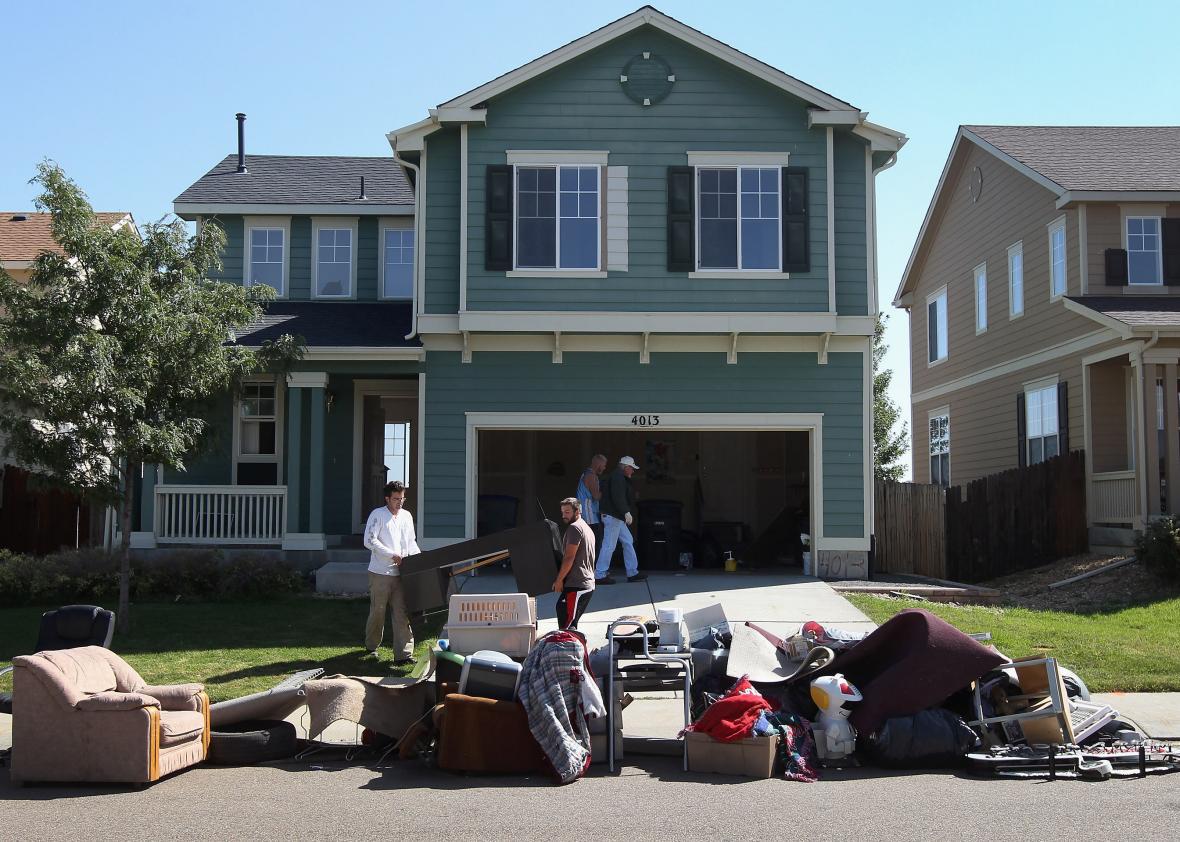The prying, humiliating, and exploitative sales tactics taught to Trump University recruiters pulled in thousands of paying customers. Some of the dupes at the three-day, $1,495 “Profit From Real Estate Workshop,” were judged to have had liquid assets of less than $2,000, meaning they’d spent about half their available cash on the Donald’s gateway educational product. (The Elite Packages, which ranged in the price up to $34,995, would be sold to them later.)
“Money is never a reason for not enrolling in Trump University,” advised the school’s playbooks, which were unsealed on Tuesday by a federal judge. Employees were urged to “collect personalized information.” Such as: “are they a single parent of three children that may need money for food?”
Credit the Trump sales team, I guess, for persuading people with virtually no money for real estate investment that they should be investing in real estate investment seminars. In this, as in other respects, Trump U was simply mimicking and magnifying the broader culture of mid-‘00s real estate investment, the get-rich-quick scheme of the age. But when that fever dream gave way to the foreclosure crisis, Trump was still selling the secrets of success. “Everybody wants to keep up with the Jones’s…what most people do not realize is that THEY ARE THE JONES’S!” the playbook noted in 2009, the bubble years having long since passed. It was then that Trump U did its best business.
Around 2005, as George Packer explains in The Unwinding, growth was all there was in some cities. “Other than minimum wage jobs at restaurants and big-box stores, it was hard to find work outside the real estate industry,” he wrote of Tampa.
People saw people buying and wanted to buy—not just in the hotel ballrooms where Trump U held its events, but in the neighborhoods around those hotels. Trump U was launched in 2005 by Trump and two associates, Michael Sexton and Jonathan Spitalny. That year also saw the debut of Flip That House (TLC) and Flip This House (A&E). Flipping Out followed in 2007, on Bravo. The folks at Trump U can’t take credit for the then-prevalent idea that anyone with any amount of money could get rich overnight in real estate. But they did exploit it.
The sales pitch now seems almost comically insulting, with its entreaty to covetousness. “Do you enjoy seeing everyone else but yourself in their dream houses and driving their dream cars with huge checking accounts?” the employees were told to ask reluctant customers. “Those people saw an opportunity, and didn’t make excuses, like what you’re doing now.”
If a customer said, “That’s a lot of money,” a Trump University employee was told to respond: “That’s a lot of money! Really? Most people look at this and are so excited that it’s only that amount with everything we include.”
In the early years of Trump U, that appeal to the imagined wealth and success of others would have resonated. If you weren’t making money in the housing market, then what were you doing? “If you’re not willing to go out there and make that money, guess what? Someone else will,” employees were advised to say to prospective students.
In 2000, one in five mortgages was taken out by multiple-mortgage holders. By 2006, Trump U’s sophomore year, that was up to 35 percent. In California, Florida, and Nevada, it was 45 percent—and almost half of those went to people with three or more mortgages. Home prices in Tampa, Miami, San Diego, Los Angeles, Phoenix, Las Vegas, and Washington, D.C., rose by more than 80 percent between 2001 and 2006. In 2005, Packer reports, one house in Fort Myers, Florida, sold for $399,600 on December 29 and $589,000 on December 30.
But an education in real estate was pitched less as a way to get ahead and more as a remedy for having fallen behind. And this became a particularly convincing tactic after the housing market popped, in 2007, and nearly everyone was falling behind. The sales process was not designed to flatter buyers but to make them feel inferior. “The more a problem hurts now, the more the need for a solution now,” the sales playbook advised. “It’s got to hurt enough!”
It was in 2007, 2008, and 2009 that it hurt the most, and it was in those years, too, that Trump U enrolled most of its students, according to New York Attorney General Eric Schneiderman’s office. Trump salespeople were told to be vague. They were told not to tell people what the success stories were. But they didn’t need to: Those stories still lingered from the boom years, just out of reach. In the golden years of Trump U, just before it relinquished the “university” title in 2010, it seemed like the billionaire’s secrets might help students recover the profits that had come so easily just months before. Relentless reminders of other people’s success, including that of “Mr. Trump,” as he was known in speeches to students, made students feel like suckers. (Which they were.)
In The Big Short, Steve Carell has an epiphany in a Florida strip club when a dancer tells him she has five houses with adjustable-rate mortgages. If there’s ever a movie about the rise and fall of the small-time housing magnates, Trump University sessions could play a similar role. They encapsulated the country’s desires, delusions, and finally, its desperation. They were a product of the age, and they live on, in a way, in Trump’s presidential campaign, in its preying on the insecurities of people. It’s got to hurt enough.
